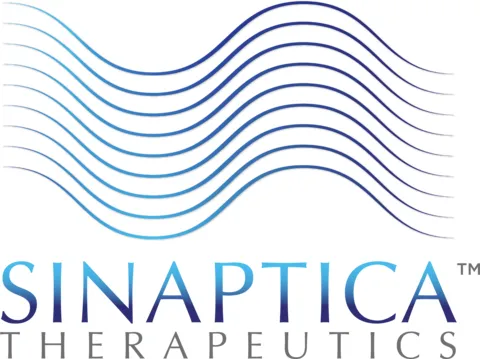
Phase 2 Trial Begins for Early Alzheimer’s with Sinaptica’s Neuromodulation System
Sinaptica Therapeutics, Inc., a clinical-stage company focused on developing personalized neuromodulation therapies for Alzheimer’s and other neurodegenerative diseases, has announced the launch of a Phase 2 clinical trial for its second-generation dual stimulation technology. The trial, which has already enrolled its first patients, aims to enroll up to 60 patients with early-stage Alzheimer’s. This randomized, double-blind study will be conducted across multiple centers in Italy.
Sinaptica Therapeutics, a clinical-stage company focused on developing innovative neuromodulation therapies, is advancing its next-generation technology to treat Alzheimer’s and other neurodegenerative diseases. The company has launched a Phase 2 clinical trial to evaluate its second-generation dual stimulation technology, which builds upon Sinaptica’s original patented precision-delivered rTMS therapy by adding transcranial alternating current stimulation (tACS). This new approach is being tested in a randomized, double-blind study with early-stage Alzheimer’s patients at multiple centers in Italy.
The core concept behind combining rTMS and tACS emerged from more than a decade of research by Sinaptica’s scientific co-founders, focusing on memory mechanisms and neuroplasticity within the Default Mode Network (DMN), which includes the hippocampus. This foundational research culminated in a Phase 1 proof-of-concept study involving healthy volunteers. The study was led by Dr. Giacomo Koch, a Neurologist and Sinaptica co-founder, alongside researchers from the Santa Lucia Foundation. In the study, young, healthy volunteers demonstrated significant improvements in long-term associative memory, showing 60-80% better results compared to controls, with lasting effects up to a week after stimulation.
Dr. Koch highlighted the advancements in Sinaptica’s neuromodulation therapy: “We’re continuing to innovate and evolve our precision neuromodulation therapy to provide the most effective and efficient treatment for patients. Our goal with these improvements is to enhance the overall efficacy of the treatment while reducing the time required for each session. We hope this trial will expand evidence that our neuromodulation of the DMN can be as effective—if not more effective—in early-stage Alzheimer’s disease as it has been in mild-to-moderate stages, as demonstrated with our first-generation technology published in BRAIN.”

The Phase 2 study has received significant backing, including a €1 million grant from the Italian Ministry of Health. Dr. Koch and the Santa Lucia Foundation’s collaboration will help further investigate the benefits of this combined stimulation approach in Alzheimer’s treatment.
Ken Mariash, CEO of Sinaptica, emphasized the transformative potential of the next-generation technology: “This novel approach, which incorporates simultaneous stimulation, holds the potential to upgrade our current therapy for Alzheimer’s disease. It’s covered by our existing patents and is part of our broader product roadmap targeting not only Alzheimer’s but other neurodegenerative diseases and even memory enhancement for healthy aging.” He added that this approach allows for a greater treatment capacity, enhanced patient experience, and continuous improvements in treatment efficacy.
Sinaptica’s SinaptiStim® System is central to the company’s approach. This system represents a new class of non-invasive, personalized precision neuromodulation aimed at treating Alzheimer’s disease. The system is tailored to each patient’s brain, providing individualized therapy delivered through weekly sessions. While the first-generation SinaptiStim® System requires about 20 minutes per session, the second-generation system can deliver the same treatment in just six minutes. This advancement significantly enhances treatment efficiency. The therapy works by targeting the DMN, a brain network linked to memory and introspection. In 2022, the FDA granted the SinaptiStim® System Breakthrough Device Designation, reflecting its potential to transform Alzheimer’s treatment.
Sinaptica is also preparing for a pivotal randomized controlled clinical trial using its first-generation system to treat mild-to-moderate Alzheimer’s disease. This upcoming trial will utilize TMS and EEG concurrently, combined with MRI-guided neuronavigation, to customize the therapy for each patient. By adjusting the treatment over time, the SinaptiStim® System aims to optimize outcomes. Additionally, the trial will assess biomarkers related to beta amyloid, tau, neural inflammation, and synaptic dysfunction.
The success of the Phase 2 clinical trial for the first-generation SinaptiStim® System was presented at CTAD 2024, where positive data showed a statistically significant slowing of Alzheimer’s disease progression in mild-to-moderate patients. The results, spanning 12 months, demonstrated improvements across all key measures, including cognition, function, and behavioral disturbances, with no serious side effects. These positive findings further cement Sinaptica’s position as a leader in developing non-invasive neuromodulation therapies for Alzheimer’s.
The second-generation system, combining both electrical and magnetic stimulation, is now being tested in the Phase 2 study for early-stage Alzheimer’s. This study aims to evaluate whether the new system can enhance the effects seen in previous research and provide more effective treatment for patients in the earlier stages of the disease.
About Sinaptica Therapeutics
Sinaptica Therapeutics is a clinical-stage company at the forefront of neuromodulation therapeutics, focusing on the development of innovative, personalized treatments for Alzheimer’s and other primary neurodegenerative diseases. The company’s proprietary approach involves precision neurostimulation of the DMN, a critical brain network involved in memory. Sinaptica’s co-founders have pioneered research on this novel method, which has shown potential in slowing the progression of Alzheimer’s. Sinaptica’s mission is to provide safe, effective, and non-invasive therapies to help patients combat cognitive, functional, and behavioral decline in Alzheimer’s and other neurodegenerative conditions.




